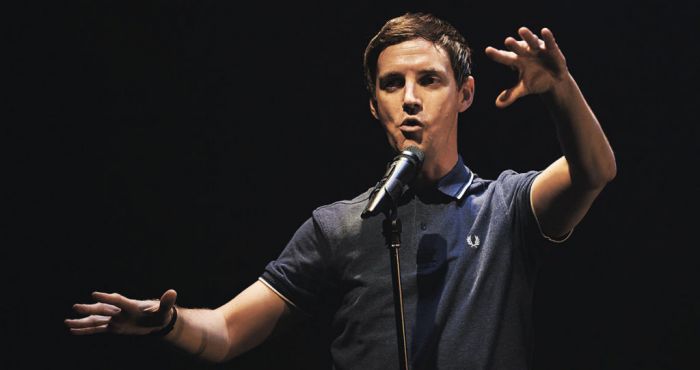
Emmet Kirwan is a filmmaker, playwright, and spoken-word artist from Tallaght, Dublin, who achieved national fame for his seven-minute short film Heartbreak. The piece, narrated in spoken word by Kirwan himself, followed the adolescence and self-actualisation of a woman as she battles a teenage pregnancy, public catcalling, and modern societal standards placed upon women. The film catapulted Kirwan to fame, with over 200,000 views on YouTube, and appearances on the Late Late Show, Kirwan gave a revelatory talk about the trials faced by modern day artists and filmmakers.
Being a drama student, it was interesting to learn that Kirwan himself has his roots in the Trinity School of Creative Arts. Kirwan discussed his roots in the world of theatre, from his humble beginnings as a struggling playwright. Many of his plays, such as Dublin Old School and Riot, incorporated spoken word and poetry, a practice that remains evident in the likes of his films Just Saying and Heartbreak. When asked about his decision to move from stage to film, Kirwan explained that staying within the one medium would not feel like progress for him, as artists must keep innovating to stay fresh. He also discussed the lack of presence of the underfunded film industry in his youth, and claimed that making statements in theatre often proves a less controversial move than in film since film is easier to mass distribute and less people are likely to be offended.
Kirwan went on to describe the business side of the proceedings, and his refusal to deal with RTÉ. Talking on his experience, Kirwan denounced the somewhat negligible nature of the broadcaster’s method of dealing with artists, claiming that he was rarely given notes on his submitted work, and last-minute meddling with the work proved disastrous on a number of occasions. It was at this stage that Kirwan encouraged the listeners to pursue more independent projects in order to achieve full artistic autonomy. On this subject he also discussed his reluctance to edit his work (which involves regional Dublin slang), as he believes that if audiences from outside Ireland do not understand or connect with the work, perhaps it is not for them.
Towards the end of the talk, Kirwan was asked whether or not he felt strongly towards non-Irish artists writing about Ireland. In response, Kirwan accepted that writers will always have a sense of romanticism with the country, but as long as there is an understanding in their work, he believes that they can write what they please, using the crime drama The Wire as an example of an excellent take on an outsider’s perspective. To Kirwan, as long as the art itself is aware and sensitive of its subject matter, it is fair game.
On the horizon, Emmet Kirwan has a number of projects lined up. His play Dublin Old School has been adapted as a film, and is being toured in the coming months. His play Riot is moving to New York University for a run in the theatre there, and Kirwan hopes to adapt a long-form poem of this into a piece of theatre. With a vast store of projects, and a code of artistic integrity, one can only hope to see more of Emmet Kirwan as his career continues to expand.






